b l o g
s e p t e m b e r 2 0 2 1
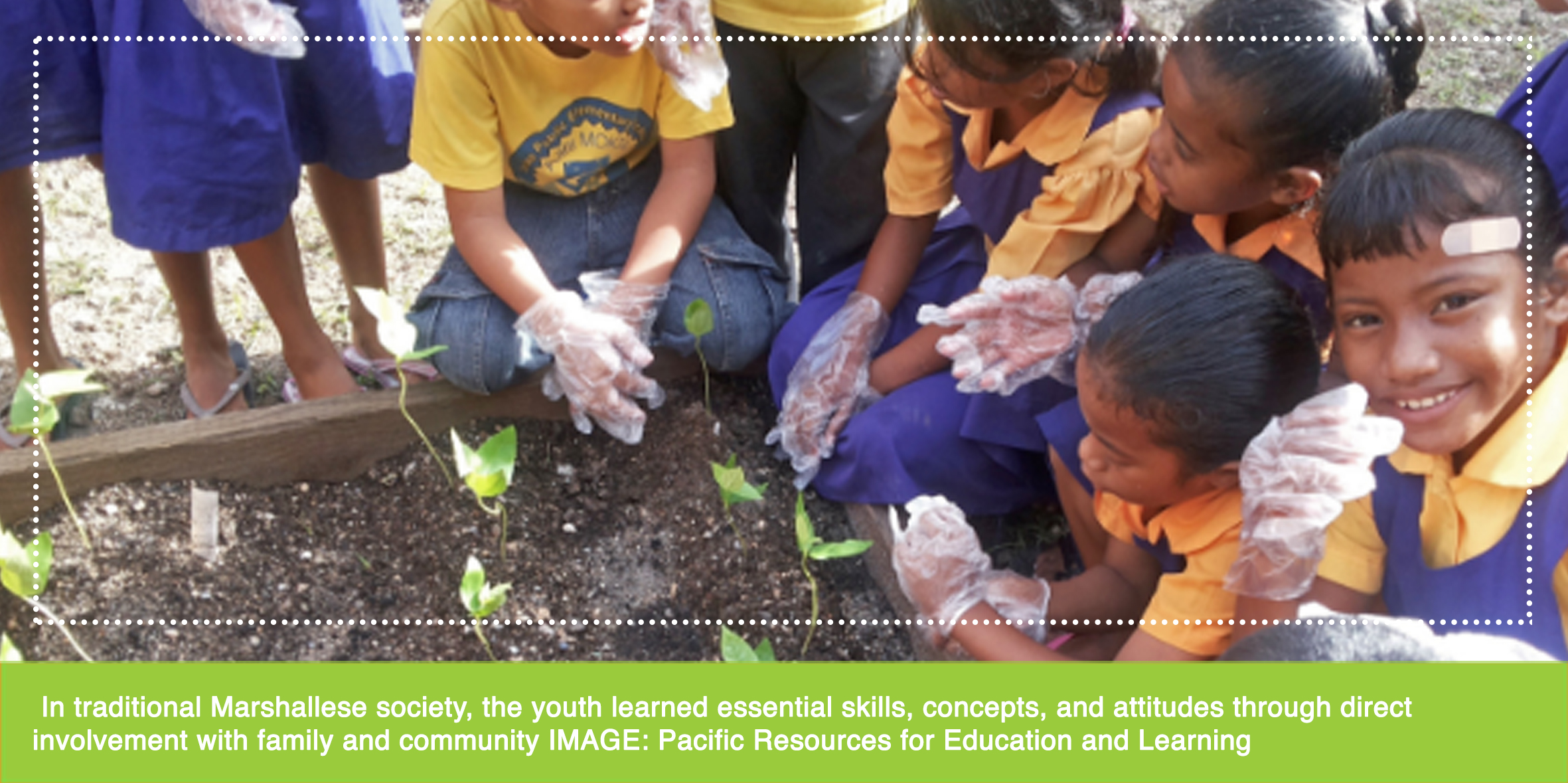
With Dr Craig Elevitch, Permanent Agricultural Resources (PAR)
Traditional agriculture in the RMI is centered around the cultivation of coconut, breadfruit, pandanus, and taro.
However, the prevalence of these main crops varies widely between the northern and southern regions.
In the northern atolls, from Enewetak east to Utirik, taro and breadfruit cultivation is rare as a result of the limited rainfall. As a result, arrowroot and pandanus are prevalent.
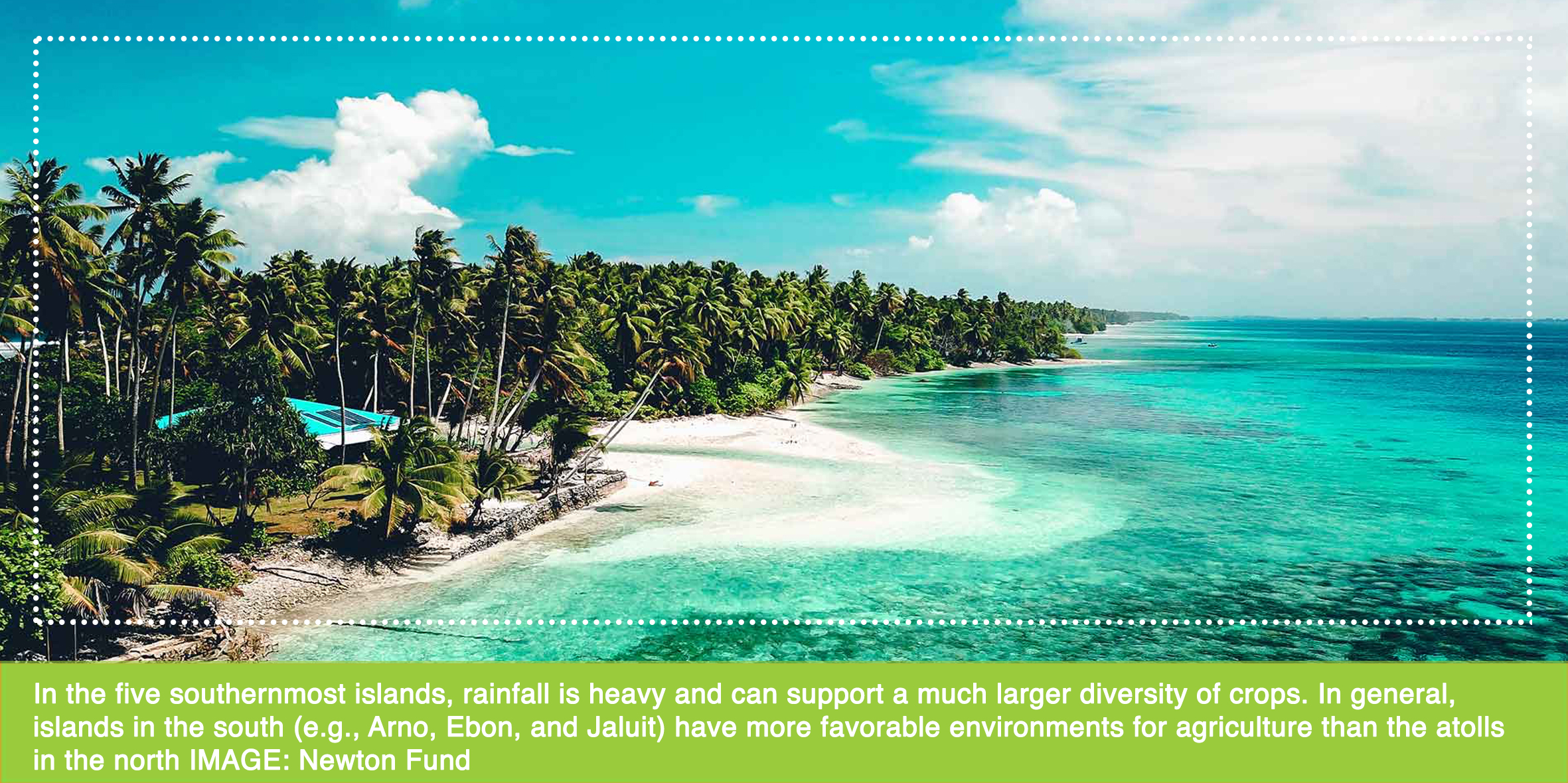
A representative of the College of the Marshall Islands (CMI) shared that the government of RMI is actively trying to build more capacity to increase agricultural production across the atolls and islands and is implementing a 10-year “agriplan”.
To this end, the government recently assigned CMI the task of creating and consistently offering courses or programs related to agriculture and forestry.
Traditional Leader: Ms. Ione deBrum
Ms. Ione deBrum is a traditional leader in RMI that works with farmers and other community members to advance food security and sustainable community livelihoods.
In 2017, Ms. Ione deBrum lead a group of women from the Ebon atoll community to create shoestring breadfruit chips that the annual “One island, One product” competition in RMI.
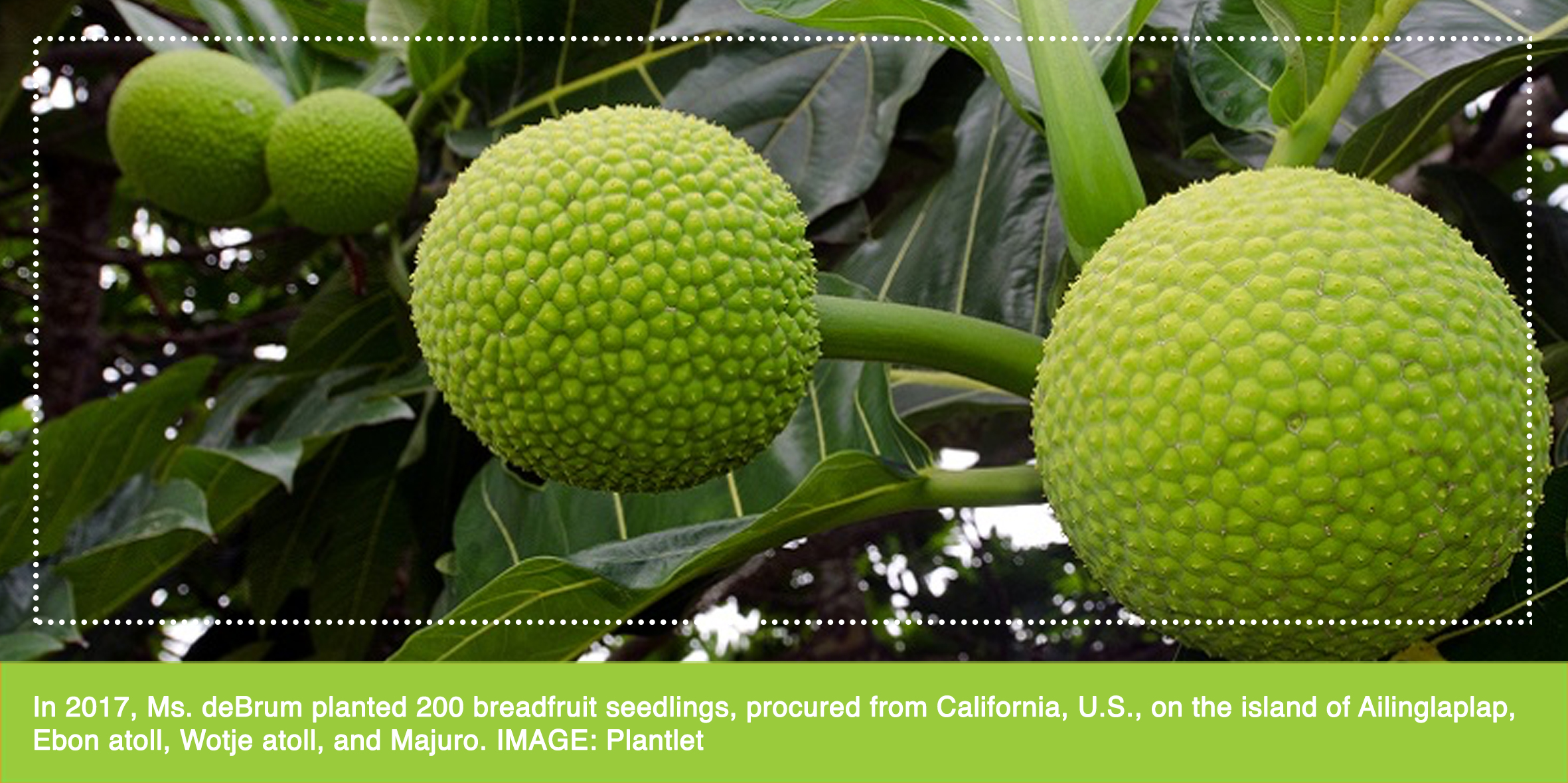
They are expected to bear fruit soon. Ms. deBrum has been ramping up her community breadfruit efforts since the pandemic began.
Leading Farmer Organisations in the Republic of the Marshall Islands
RMI PSS School Learning Garden Program
RMI Public School System’s School Learning Garden Program in Majuro provides small farm training and technical support for teachers, parents, and students, with a focus on organic practices and agroforestry.
Currently, students are learning to plant breadfruit trees and to cook and bake with breadfruit as part of the program’s health and educational curriculum.
The farms and gardens vary in size depending on the available space at each school. RMI PSS is proud of the involvement from students, staff, and parents in the projects.
Canvasback Wellness Center
Canvasback Wellness Center (CWC) is a NGO that through a variety of projects and programs helps communities and farmers establish homegardens with the goal of increasing residents’ health outcomes.
CWC’s beneficiaries include low income or underserved individuals, indigenous Marshallese, and diabetic patients.
CWCs promotes agroforestry, organic gardening, sustainable agriculture, raised bed system, and wicking garden systems.
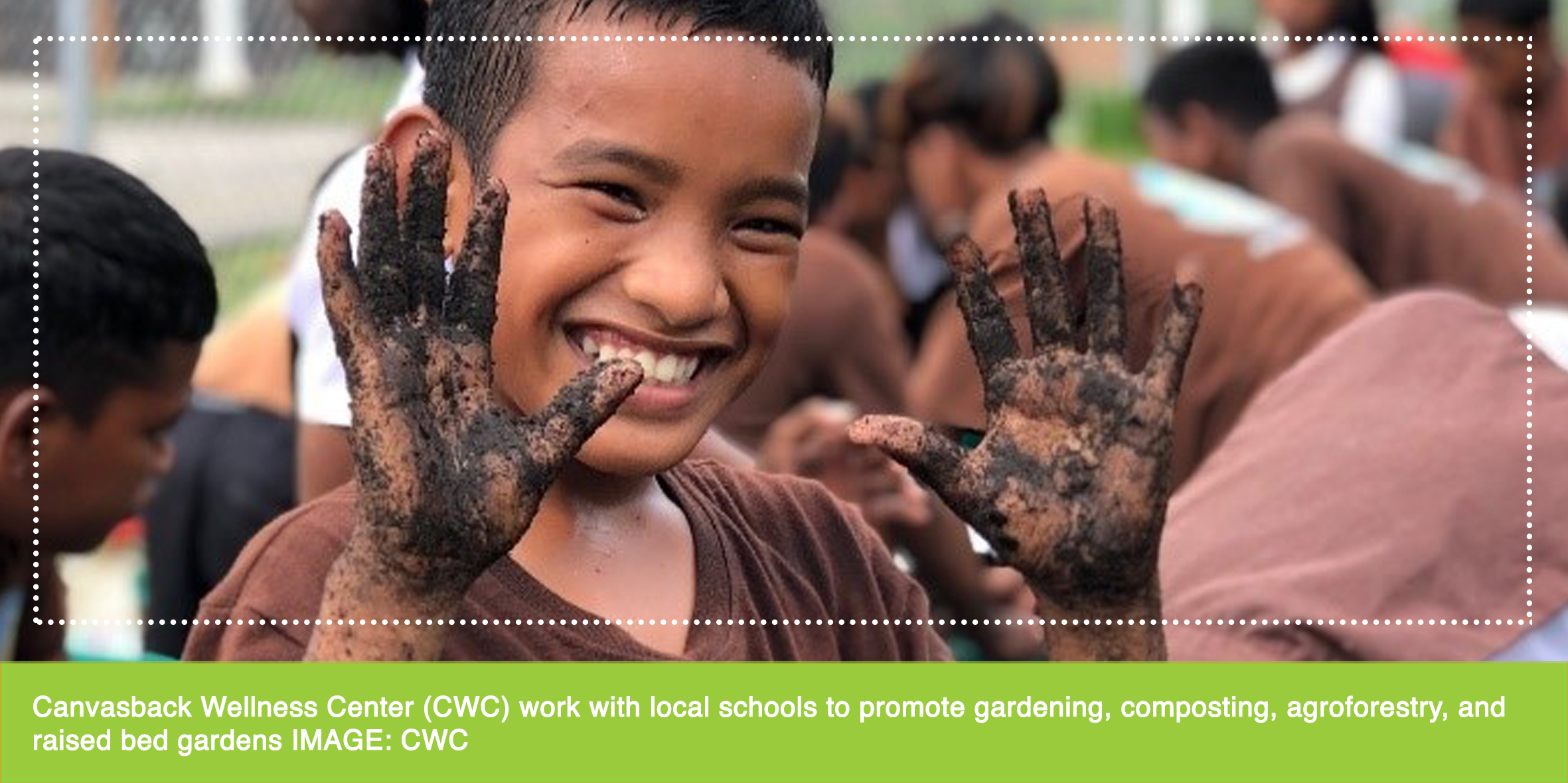
The organization partners with other farming associations to expand its reach to outer island farmers on atolls.
Through this partnership, CWC is currently serving 10 farmers on Jaluit and 30 farmers on Ailuk atoll with pruning of old trees, raised bed gardening, and gardening at schools.
CWC maintains and teaches at four large school gardens, each with composting, agroforestry, and raised bed gardens.
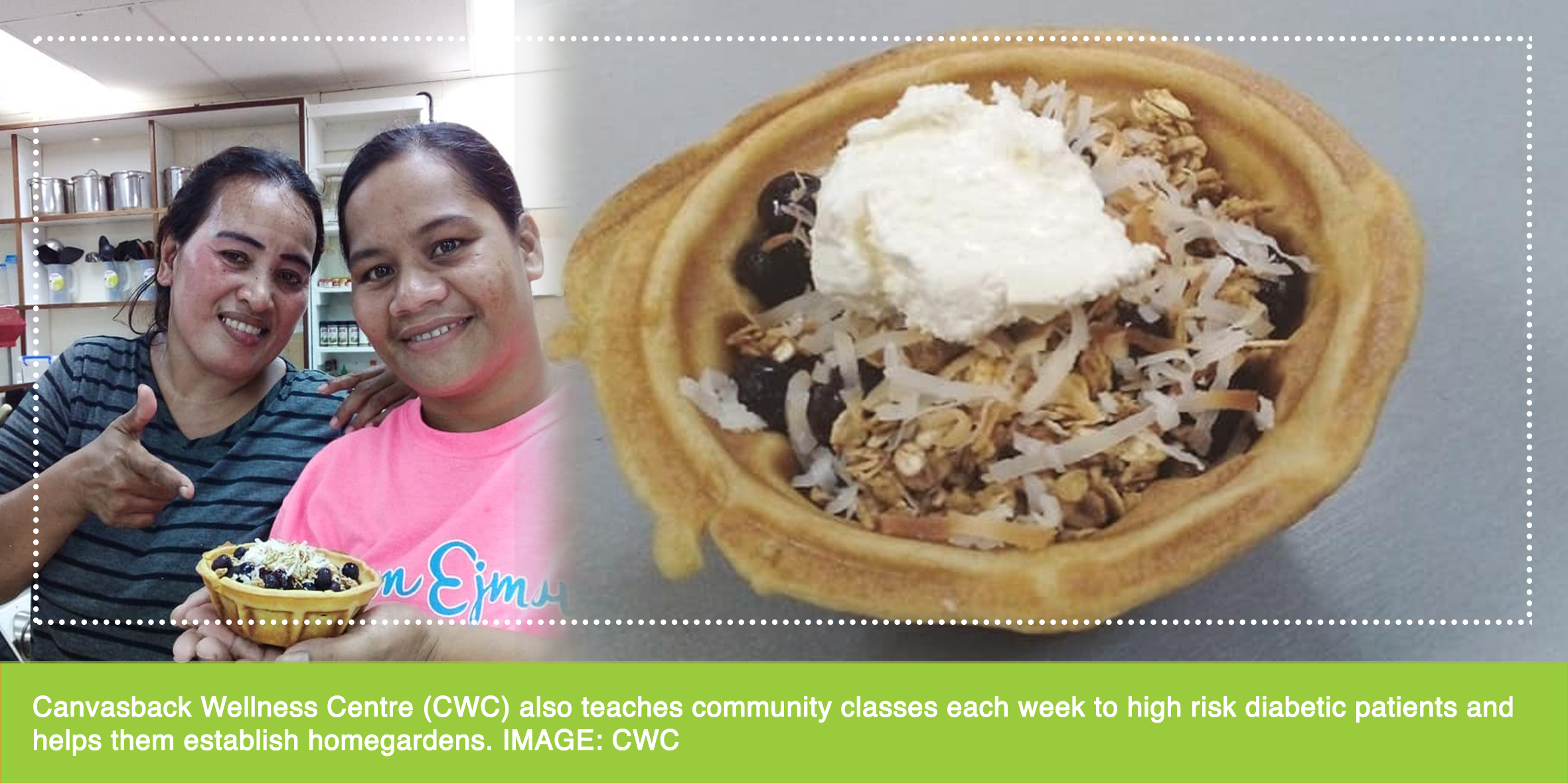
In 2018, CWC helped established 300 homegardens, and conducts ongoing house surveys on homegardening in the downtown Majuro area.
CWC also works with the RMI Public School System and the Ministry of Education to establish school gardens and teach gardening classes that promotes traditional knowledge along with modern gardening techniques.
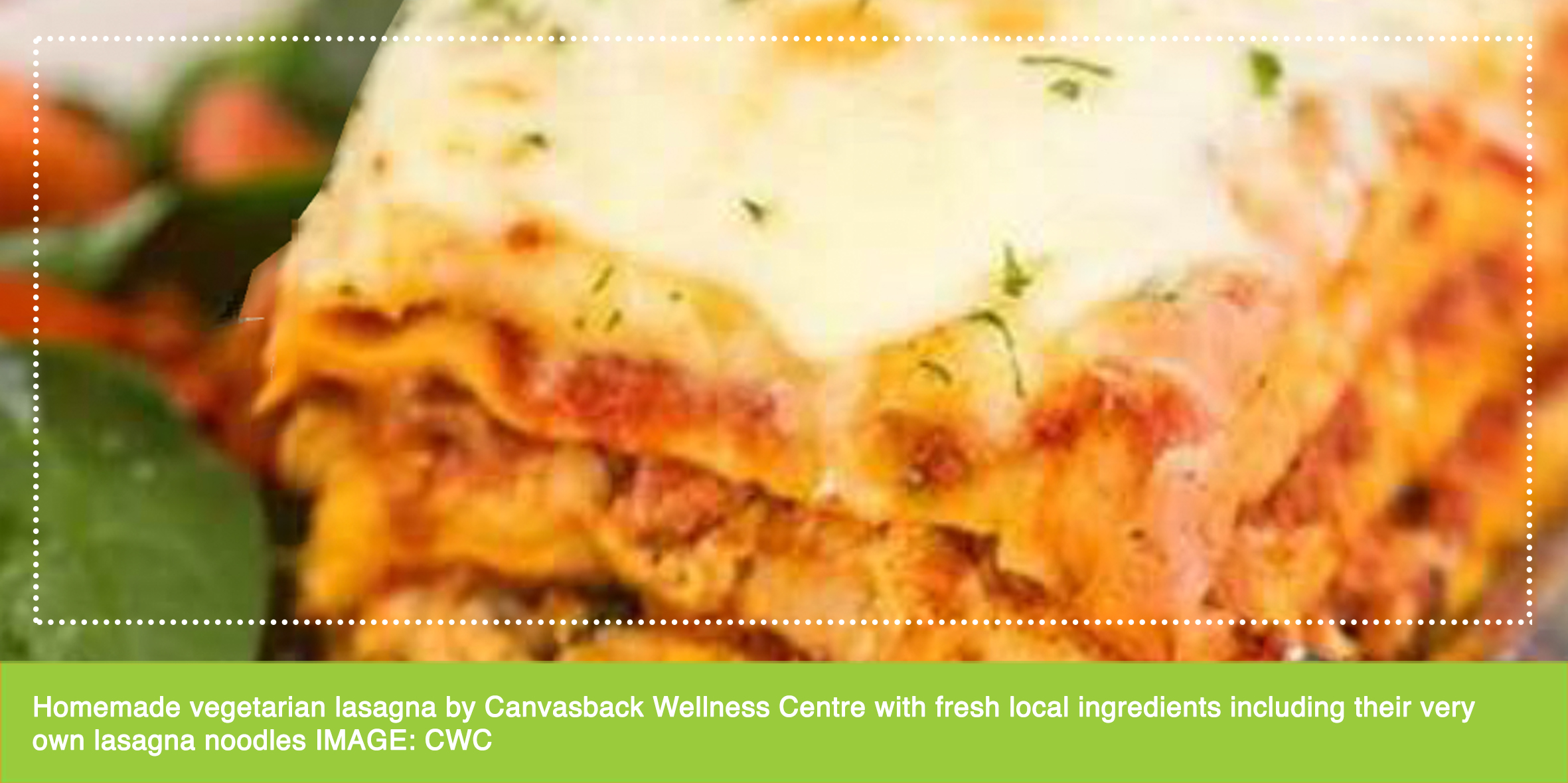
Additionally, CWC has a partnership with the Non-Communicable Disease Coalition and the Ministry of Health and Human Services to provide hydroponically grown produce to local stores as part of encouraging increased consumption of fresh produce.
